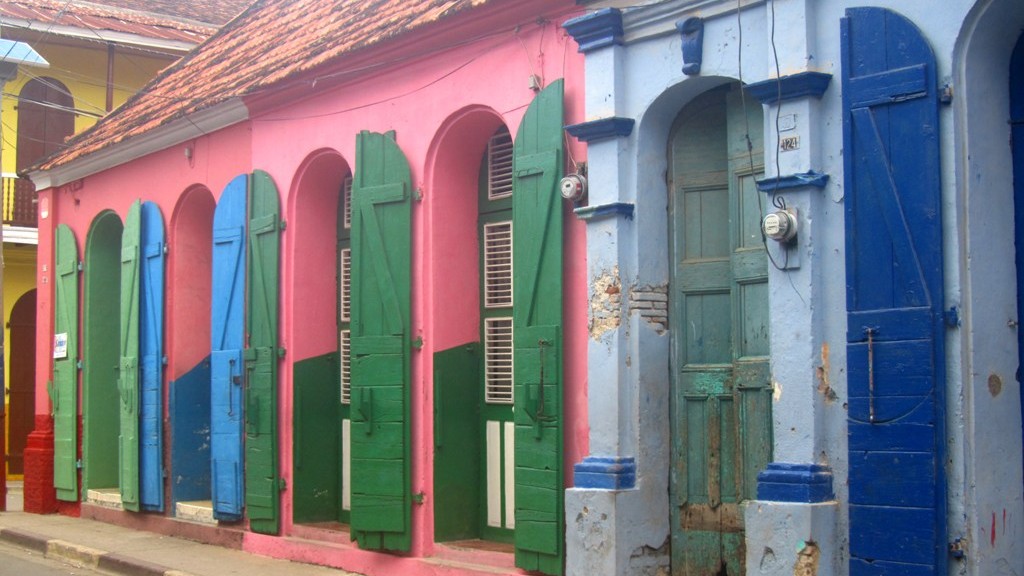I last visited this challenged country three years ago, about five months after the devastating earthquake. I’m back for another round and I am finding some real post-earthquake progress; but challenges continue and a fair bit of dysfunction remain. This time I am working in Haiti’s north, in Cap Haitien, the country’s second city. By any poor country comparison Haiti is poor. Also by any poor country comparison, Cap Haitien is an absolute jewel. It is vibrant, reasonably well supplied with hotels, restaurants, and nightlife, and is remarkably secure. I safely and enjoyably walk the downtown after dark. The colorful and balcony lined streets are reminiscent of New Orleans (another poor city.)
My client is Makouti, a local business that supports entrepreneurial efforts by small holder farmers, bee keepers and producers of chicken, goat, and rabbit meat. Makouti has asked me to visit a range of their farmers and producers, design business training for them, and guide the writing of a business plan for the producers.
Last week my first visit was to a successful beekeeper and honey producer. He let me sample a new product he is offering – – described as Haitian Viagra. I downed a bottle. Ladies, please do not read the next sentence. (Guys, I think you can make this at home; it is mostly a blend of honey, peanuts, and ginger.) Ignoring the likely overly touted Viagra-like effects, the product tastes delicious and is quite healthy. I cannot report the same health benefits from the rest of the Haitian diet. One legacy of French colonialism is a fondness for white bread and french fries. Fried plantains and white rice round out the mix. In a poor country with numerous health challenges, I suspect such a diet is not a life enhancer.
Yesterday I conducted my first training session for the farmers and producers. One topic I covered was marketing. I asked one of the farmers how he communicated to his customers. He replied, “I don’t need to, they know who I am and they come to my house.” I believe he is following the famous adage credited to Ralph Waldo Emerson, “Build a better mousetrap and the world will beat a path to your door.” There are at least two shortcomings in this message: you must communicate that your mousetrap is indeed better and you must tell your customer how to find your door. The good news here is that there is plenty of room for improvement in this farmer’s marketing program.
Due to the simple fact that I come from the United States, I am seen (likely erroneously) as a business expert. I met a local guy at my hotel who wants my advice regarding his pizza parlor in town. Now I don’t know much about the retail pizza business, but I suspect I’ve got the basics nailed: take a heap of refined white flour, throw on a glop of mozzarella, and then ladle on canned tomato sauce: voilà, pizza. I think I’ll recommend that he watch Mystic Pizza.
Frequent readers of this space may recall that from time to time I like to get a haircut from a local barber. I generally wear my hair on the bushier side. I now have learned that if you do not know the Haitian Creole words for long, short, and hair, you are pretty much at the artistic whim of the kwafè (barber.) Haitian men sport one of two hair styles: shaved head and short buzz cut. I lucked out and got the latter. In fact, the last time my hair was this short was July 1, 1967 – – the day I was inducted into the army. Over the next several months I will save barber fees while my hair grows out. As well, I have access to Haitian Viagra until my hair is presentable again.

